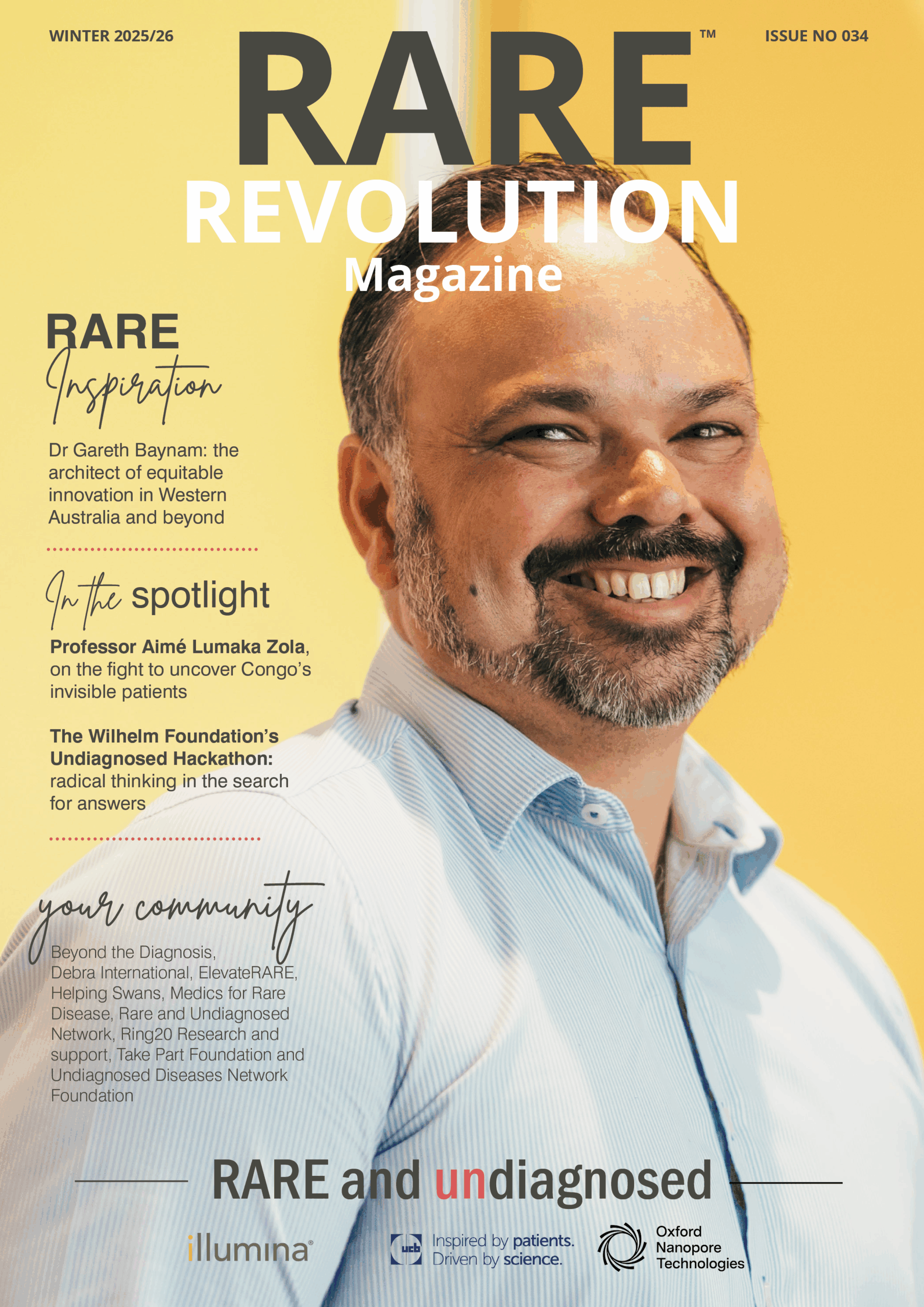A family’s fight for sleep: the unseen side of Williams syndrome
Having a baby is like a gift. However, when we hear that our child has been diagnosed with a rare genetic disease, that wonderful gift can turn our lives upside down in a great many unexpected ways. This shocking news can be initially hard for many—raising a baby with special needs is not easy and requires good planning of psychological, financial, social and medical needs
Written by Dr Ehab El-Qushayri, rare family member
Williams syndrome is a rare genetic disease that affects 1/7500 cases1. Characteristic features of Williams syndrome are overfriendly (disinhibited) personality, delayed cognitive and development milestones, cardiovascular problems and distinct facial features (upturned nose, wide mouth, wide tooth space and puffiness around the eyes)2.
Fortunately, I am an uncle of “Adam” a Williams syndrome patient. Yes, you heard it right. I am lucky to be a member of the Adam’s family.
At the age of three months, we noticed that Adam cried excessively without any specific notable reason. This was associated with a blue colouring in his lips during the crying phase and poor sleep quality. Adam’s father and I are both physicians; however, we are not paediatricians. Therefore, we sought medical advice from a nearby paediatrician who asked for an urgent cardiovascular examination. Two days later, we visited a well-known paediatric cardiologist who requested for many cardiovascular investigations, and she advised us, “I know this could feel strange for you, but please go for genetic testing of your baby as I suspect features of a genetic disease.”

Genetic testing for Adam was carried out in the United Kingdom where his father was working as a physician at the time. As I remember, after 2-3 months, we received the shocking news: “Adam was diagnosed with Williams syndrome”. The shock was very strong for his mother, who cried for many hours. Despite her high emotional state Adam’s mother recognised that her child is unique and was in need of special care.
While growing up, we noticed that Adam had sleep problems, or as I would call it “The silent pandemic of Williams syndrome’s patients and their caregivers”. It is understandable that the caregivers face sleep problems due to stress, fear, anxiety, depression and worry about their child’s health status and how their life would be in the future. However, it is somewhat mysterious for many families just why their Williams syndrome’s baby faces sleep problems.
Caring for a baby with William syndrome is not easy, and when it comes to sleep, it becomes more complicated. Indeed, research indicated that ~50% of Williams syndrome patients face sleep problems.3 Many reasons stand behind this observation, including biological, behavioural, psychological and medial factors.4
Throughout his life Adam’s sleep status has become better due to a combined approach from our family, the treating healthcare providers, as well as the social supporting groups who have the same condition or other rare ones.
While some families see living with these challenges as a ‘nightmare’, I see the opposite due to my beliefs and my profession. We have passed a difficult time, where I lost many hours of sleep due to caring for Adam as a member of his family. This is the first time I am saying this out loud—my family does not know that I give up a PhD degree in order to stay close and provide support. Because the truth is caring for a special-need baby and their complex needs takes support from the whole family
Actually, when I play with him, you can see the stars shining in his eyes. Maybe I am quite emotional; however, their overfriendly personality is somewhat rare to find in this fast and merciless world. Furthermore, it gives me passion and determination to spread the knowledge about his condition and how to care for sleep problems in this particular group of patients.4
“Do not be shy; your child is special and needs you by their side.”
Dr. Amr Ehab is a physician, medical researcher (with a special focus in the field of Public Health), an academic editor at PLOS ONE Journal, and the author of more than 50 internationally published papers in high impact factor journals, including Lancet Microbe.
References
[1] https://journals.sagepub.com/doi/abs/10.1177/088307380201700406
[2] https://www.nature.com/articles/s41572-021-00276-z
[3] https://www.sciencedirect.com/science/article/abs/pii/S0891422213003600


